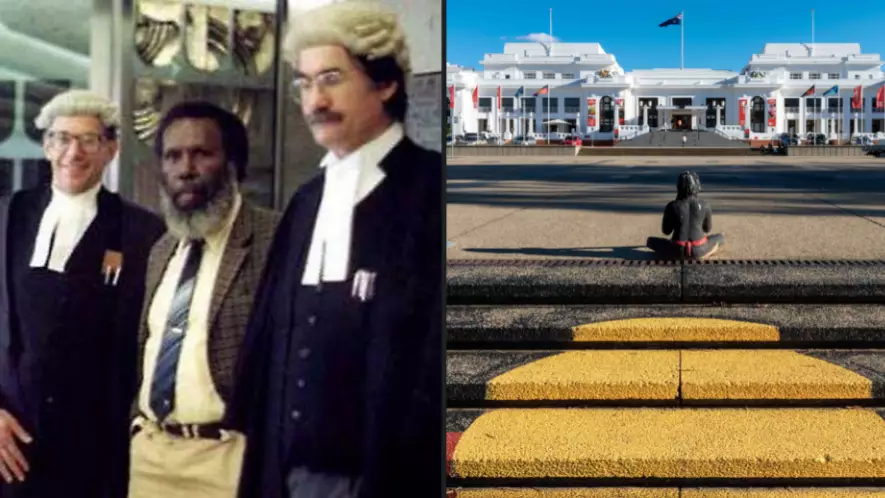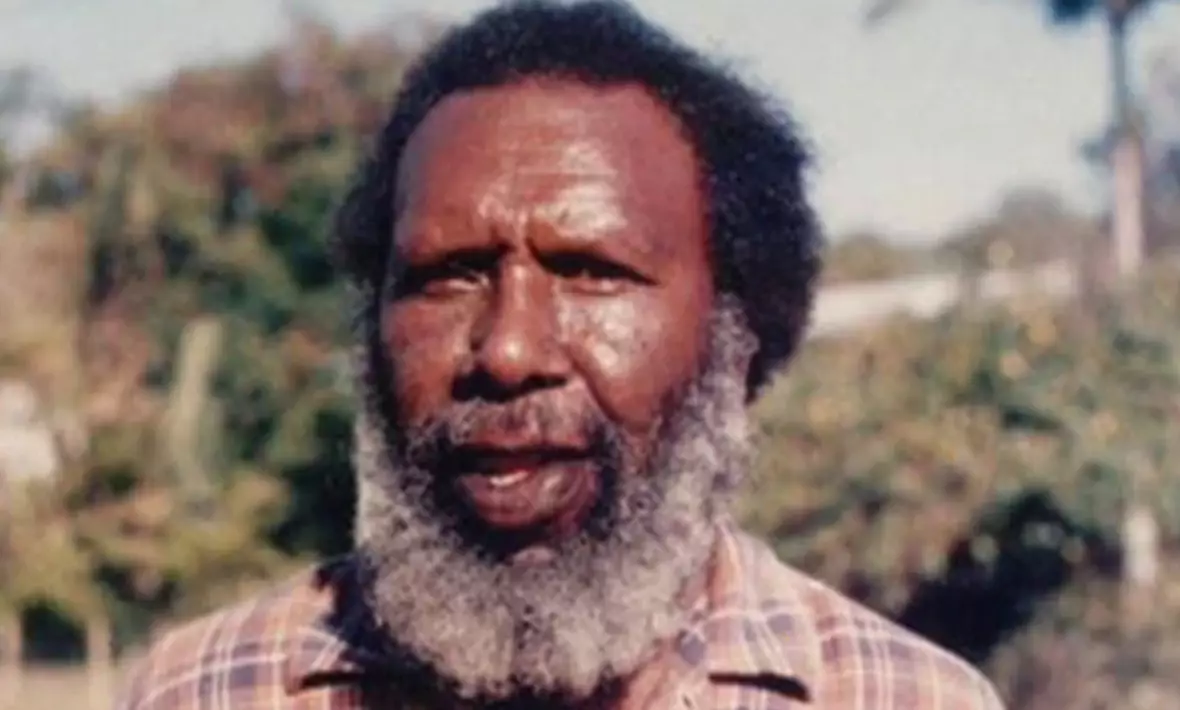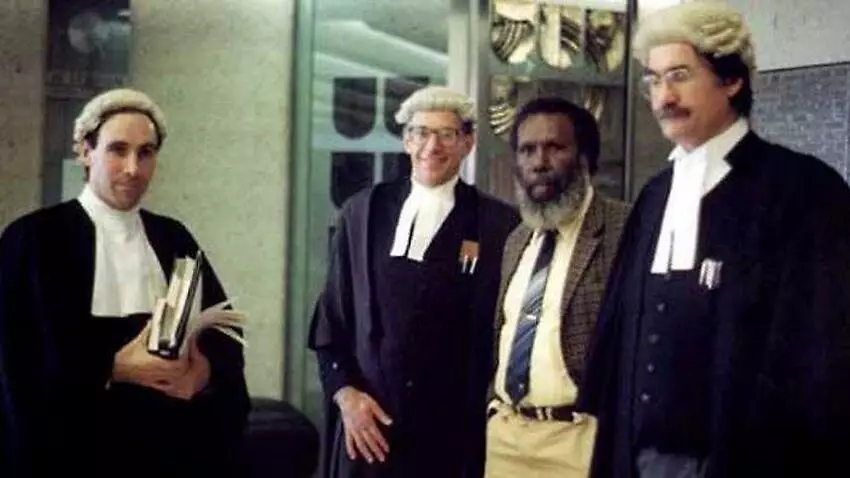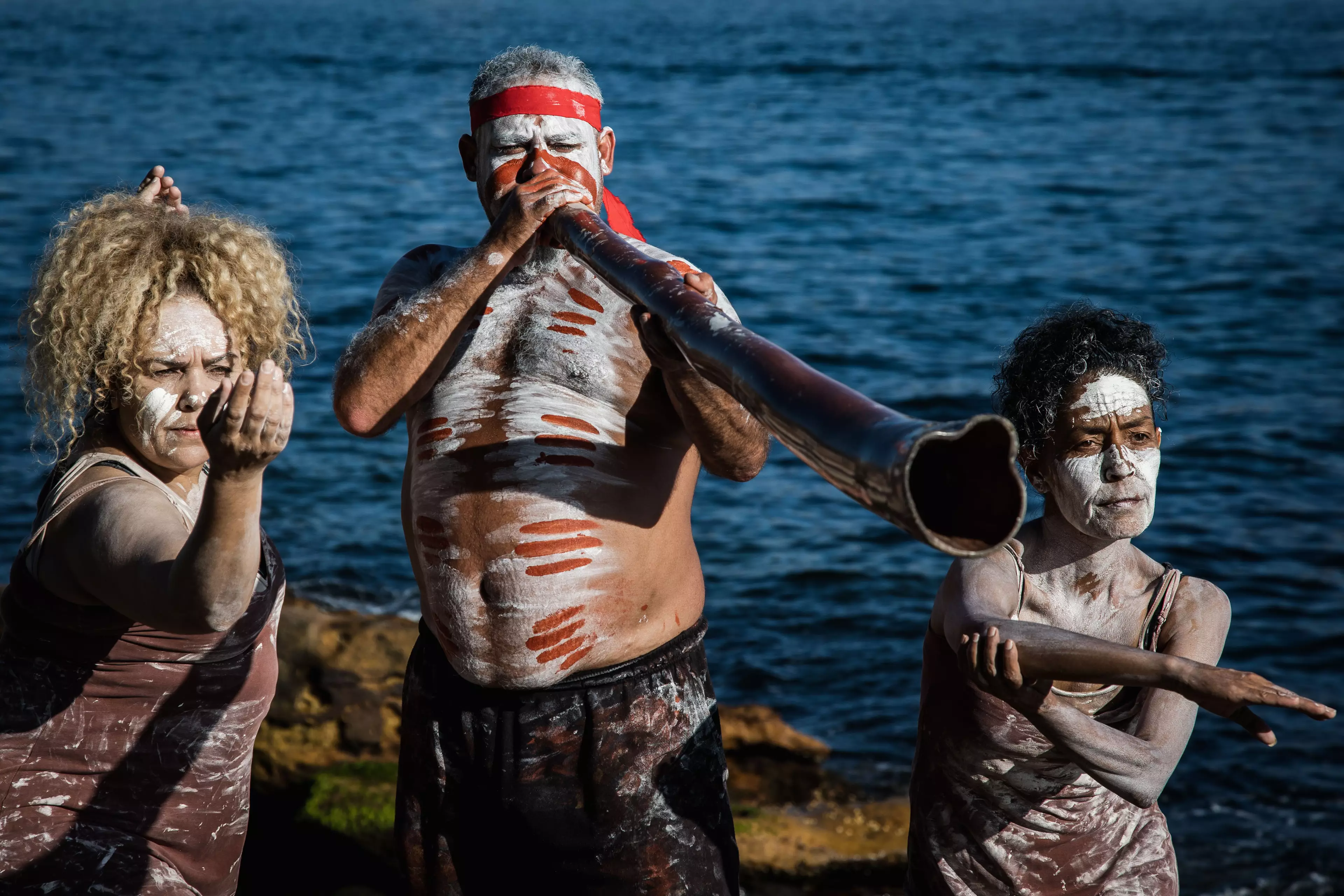
It's 29 years to the day that Australia's High Court rejected a notion that had been perpetuated for more than 200 years.
This story contains images and names of Indigenous people who have died.
When colonialists first arrived onto Australia, they believed the humungous land mass 'belonged to no one' and thus terra nullius was born.
Advert
Subsequent settlers and government policies held onto the notion and it essentially stripped Aboriginal and Torres Strait Islander people of their traditional rights to land.
The policy allowed people to essential take whatever they wanted and it severed First Nations people's connection to their culture that had lasted for tens of thousands of years.
That was until Torres Strait Islander activist Eddie Mabo discovered in 1972 that the island he was born on, Mer, belonged to the Australian government and not by the Meriam people.

Advert
When he raised this issue at Land Rights Conference in 1981, a lawyer believed Eddie should test native title in court to see whether he could break the centuries-old tradition.
A year after that conference, Eddie teamed up with four other people who were born on Mer, Celuia Mapo Salee, James Rice, David Passi and Sam Passi, and together they launched a legal battle in the High Court.
It was a battle that lasted a decade and on June 3 1992, the High Court overturned the concept of terra nullius.
Eddie Mabo sadly never got to see his life's battle come to fruition as he died five months before the result was handed down. Celuia Salee and Sam Passi also died before the High Court decision.
Advert
In honour of his courageous fight, June 3 has henceforth been called Eddie Mabo Day.

It was a historic day for First Nations people across Australia because it finally recognised that they were the traditional custodians of the land before European settlement/invasion in the 1700s.
The decision also ushered in a new battleground for native title claims. A year after the June 3 decision, the Australian Senate went through its longest-ever debate.
Advert
A mammoth 52 hour debate finally resulted in the government passing the Native Title Act 1993, which provided 'a national system for the recognition and protection of native title and for its co-existence with the national land management system'.
It allowed First Nations people to make claims with the relevant authorities that they owned the land that was previously controlled by the Crown.
Sadly, the legislation was worded in a way that has made it difficult to get successful native title claims because it requires claimants to bring forward evidence that can be hard to find or corroborate.

Advert
Jamie Lowe, a Gunditjmara Djabwurrung man, told SBS last year: "You speak to anyone that's been in a native title determination, it's tough for the people. It's traumatic, bringing up a lot of old stuff. Usually, it takes the best part of a decade to go through the courts.
"Close to 30 years down the track, the progress has been stagnant...there is a lot of unfinished business. We've had small wins here and there, but they are few and far between."
Back in 2002, Eddie Mabo's widow, Bonita Mabo, called for June 3 to be made a national holiday on the 10th anniversary of the High Court decision.
A year later, Eddie's son, Eddie Jr, added to the call for a national holiday, saying: "We believe that a public holiday would be fitting to honour and recognise the contribution to the High Court decision...but also to acknowledge all Indigenous Australians who have empowered and inspired each other.
"To date we have not had a public holiday that acknowledges Indigenous people and which recognises our contribution, achievements and survival in Australia."
The campaign was sadly rejected by authorities.
To support the fight against racial injustice visit ladbible.com/unheard
Featured Image Credit: SBS/PATopics: Australia